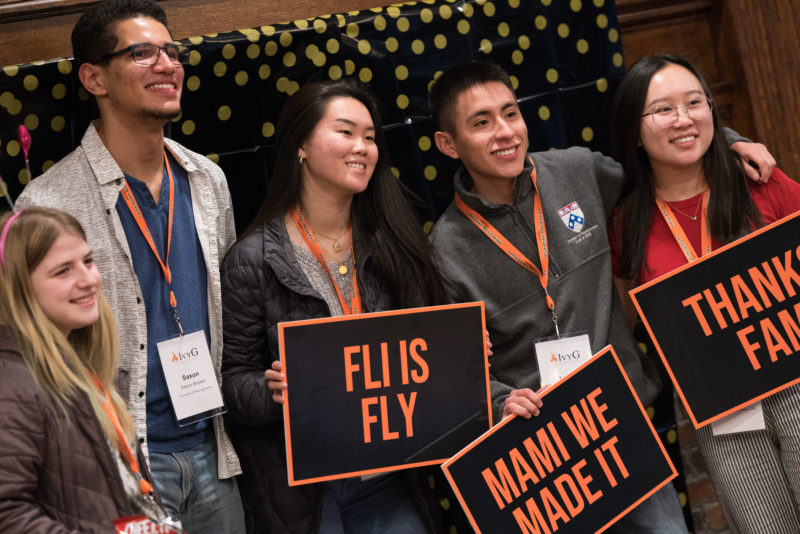Celestin Okoroji holds academics and his peers to account – do we “just turn our backs when we are actually given a chance to speak up, a chance to do something, however small that something might be?”
In this module, Contemporary Issues in Teaching and Learning, part of the Postgraduate Certificate for Higher Education, we try to explore and critique how higher education (HE) is done. This is explicitly stated in the course materials, i.e. we are asked to critically examine, reflect, and adapt our own teaching practice based on our new critical engagement, and ‘contribute to and inform the discussion’ on higher education. Just below the surface, there is an understanding that HE is a work in progress and the people most likely to influence changes for the better are the ‘next generation’ of academics and HE administrators – current PhDs. By putting together this blog, a vital element of the Contemporary Issues module, we show the wider academic community and each other that we are concerned about the issues which affect how our careers are likely to unfold, and are putting intellectual labour into considering their effects, if not offering solutions.
In the very first seminar of this module something strange happened. We had discussed at length various issues related to HE, such as the Research Excellence Framework (REF) and the Teaching Excellence Framework (TEF), the competing demands of teaching and research, and what effect the commercialisation of HE might have. All these are important issues, which are unlikely to be solved before the time when my generation of PhDs become the people who make a lot of the important decisions. We were all on the same page, having a good moan about the issues as we see them and imagining brighter futures. Then we were informed that we would develop these ideas into a public blog.
The mood changed, some were nervous about writing in a new style, which is perfectly understandable. But many were worried about putting critical ideas on paper, lest they come back to haunt them, or hinder their future careers. At the time I was truly unsettled: had we really just spent the past hour discussing the abysmal student experience in our own university, how some students are marginalised and the perils of the tracking bureaucracy, to then just turn our backs when we are actually given a chance to speak up, a chance to do something, however small that something might be?
The system works for us, why would we want to change it?
I tried to speak up at the time, my voice quivered, which is untypical of me; partly because I was holding back the urge to say, ‘See, you don’t really care – unless you’re affected!’ Now that I’ve had some time to think about what happened that day, and to read some of the literature, I think that maybe, though the aims of the course are noble, that we have made at least one fallacious assumption – that current PhDs are the ones who can, or are willing, to build the future of HE in a way that tries fix its current problems.
In my PhD, one of the key theoretical tools that I use is Social Representation Theory, which helps us to understand how knowledge is constructed in societies and transmitted through social interaction. Many disciplines have theories about how knowledge is created, disseminated, contested, and changed, so the tenets of the theory aren’t too important. What is interesting is that it appears that the social representation of the performative academic is already embedded in the minds of PhD students.
Performativity in this context relates to the ways that, to paraphrase Stephen Ball, ‘social processes and events are translated into simple figures.’ The difficulties come in whether such processes are even possible to quantify; and if they are, what should be quantified i.e. overall attainment or progress, number of widening participation undergrads who come in, or the number who leave with a good degree, etc? Ball argues that these processes regulate the behaviour of teachers rather than de-regulating them. This is because although it may be possible to arrive at the outcome desired by the measures in a variety of ways, the place at which one must arrive to be ‘successful’ is always the same.
 Freeze frame from the film, Dear White People
Freeze frame from the film, Dear White People
So, for example, if students must express ‘satisfaction’ with your teaching in order for you to receive tenure, it doesn’t really matter if you make assignments easier so everyone gets a good grade, or provide a huge amount of contact time to ensure students are fully prepped for the assignment. As long as at the end of the day they are ‘satisfied.’ (I realise I have equated satisfaction with grades, but given the cost of HE, many feel that they are buying their qualifications, ergo satisfaction/grade are probably closely related.)
In this way, Ball argues that this is a new form of control – “controlled de-control.” But, perhaps at this point, 15 years on from the original article, the control is already embedded in the social representations of what it means to teach, or even to exist within higher education. As Ball also notes, the standards and accountabilities in higher education are often changing or not clearly spelt out. As such, when PhD students recoil from critiquing the system perhaps that’s the sensible thing to do. Therefore the ‘technicians of behaviour’ are no longer needed, the architecture of behavioural control is already embedded in the minds of the next generation.
Today we may argue one thing, and five years from now the thing we argued for could be akin to arguing for eugenics, as some ‘scholars’ still do. So, if the aim is to succeed within the current system then the crucial thing might be to not argue for anything and just follow the emerging status quo. We must also consider that in general, any PhD student or academic for that matter, has been successful in the education system as it is. How then, can we offer credible critique?
the ‘technicians of behaviour’ are no longer needed, the architecture of behavioural control is already embedded in the minds of the next generation
When I was younger and trying to find myself, I got clued up to a phrase which I try to use as a personal motto – `if you make an observation, you have an obligation.’ That means if you see something wrong, you should say or do something. I see that many aspects of higher education are problematic, for instance, the fact that in 2015, out of 16,000 professors in the UK only 85 were black, that science is gendered, that people from backgrounds like mine are more likely to be in prison, than in higher education. So, I will personally try to break down barriers, and one of the easiest ways to do that is to point out directly, that despite all of the great minds, the LSE has yet to figure out how to be fair and equitable in student acceptances, attainment or as an employer. Similarly, it has not yet been radical in re-imagining what higher education should look like; instead, like other universities, it chases the ‘terrors of performativity.’
I now know that if I want to be involved in the changes that might bring about an end to the issues I’ve discussed then doing it as a PhD student probably won’t work. After all, as Audre Lorde famously said, ‘The Masters Tools will never Dismantle the Masters House’ and to be honest, a PhD student is the ‘masters’ key tool, given that we deliver a huge amount of both the teaching (marking, planning, contact time) and research output (data collection, processing, analysis, and writing even beyond our own PhDs of course) of the university. Maybe, we cannot entrust the future of higher education to future academics, perhaps it should be students, or governments, or employers, or someone else, but whoever it is, it probably shouldn’t be us.
__________________________________________________________________________________________________________________________Disclaimer: This post is opinion-based and does not reflect the views of the London School of Economics and Political Science or any of its constituent departments and divisions.
__________________________________________________________________________________________________________________________
Note: A version of this post first appeared on 19 February, 2018 on the Contemporary Issues in Teaching and Learning Blog, part of the PGCertHE programme at the LSE.




